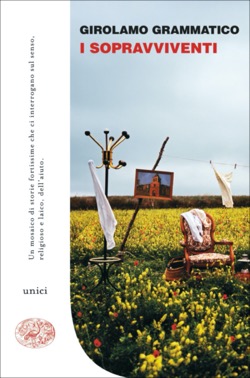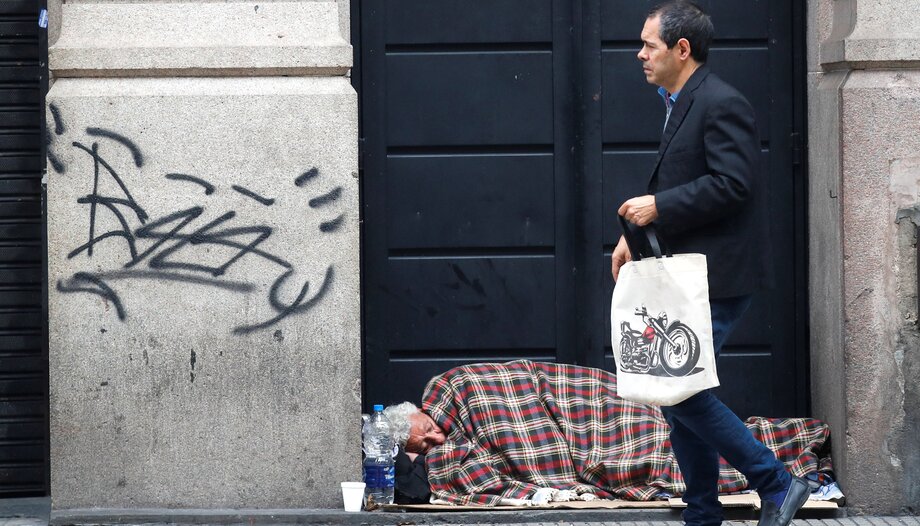The problem of poverty in European cities is related to the loss of employment, which leads to the loss of housing and social ties.
According to EUROSTAT, in 2021 and 2022, 21% of the European population has been at risk of poverty or social exclusion in the European Union due to unemployment.
A traumatic event in a person's life, such as an accident, loss of employment or livelihood, can lead a person to destitution, survival and homelessness.
The Italian writer Girolamo Grammatico, in his autobiographical novel "I sopravviventi" (title in Italian, in English "The Survivors", but not yet translated), explains how homelessness is not a living but a "surviving", although no one is called a survivor, because as human beings we are alive, we live; we do not survive, but we live our lives. On the other hand, whoever finds the bonds of his own life broken, survives poverty.
I sopravviventi

The poor survive in misery, they are not dead; but they lead a life that no one would call a life, no one would say that life on the street, before the indifference of most passersby, with the lack of food, without shelter from the winter cold, with the consequences of physical and moral violence, could be called a life. The homeless only have the minimum necessary, when they can get it, but beyond that they have no affection, no people who care about them.
The book I have mentioned has given rise to many reflections in me. It recounts the sufferings of those who have lost their homes, their "abode", a term which, as the author points out, derives from the Latin "morari", to stay, or "to delay" if the "de" is prefixed with a reinforcing value. People who live not by choice in filthy places, where no one would want to stay, are people stigmatized for life as guilty of their own poverty. I do not believe that no one chooses to live on the street, even if out of shame at his or her condition a poor person might claim otherwise. No one chooses to live alone; those who live alone do so not because they choose to, but because they have no choice.
Who or what has made the "homeless" homeless, where they are, where we are and how we have become what we are based on how we have chosen to inhabit the world, because to understand who a person is we must start from how they inhabit the world, from where they are positioned in the world.
The homeless are labeled for what they do not have, a house, and not for what they are. Indeed, the homeless do not have the keys to a house and, above all, they do not have the keys to their own destiny.
The question of extreme poverty in the cities is linked to the responses that can be given, because if the cause can be an unforeseen and unforeseeable event, such as the loss of a job or of a family member, the consequences of poverty do not seem to be of political and social interest with a few exceptions, as in the help given by some realities that are completely dedicated to the poor. For example, the Pauline Fathers (or Vincentians), who through a project called "13 Houses" respond to these problems by providing the poor with a decent home in areas such as the slums of many metropolises, or in favor of people who have fled to another country as refugees or because as a result of natural catastrophes or wars they live in their own country but in conditions as if they were refugees abroad.
Homeless people, being exposed to malnutrition and life on the streets, can easily fall ill and end up with other problems such as alcohol addiction. A person suffering the consequences of their poverty is overwhelmed and crushed by the reality in which they live. The homeless, in their fragility, spend the day outdoors, and a few lucky ones spend the night in a shelter for the poor, but the majority always on the street, with the risk of being victims of violence, exploitation, low temperatures, with the problems sometimes of drugs, alcohol, human trafficking and exploitation. Some people flee from countries at war, others from poverty in their countries of origin, only to fall into abject poverty in our cities.
Girolamo Grammatico's book is a testimony of the work of a Samaritan in our millennium. As in the Gospel parable, even today there are still people who dedicate themselves for years to the service of other excluded human beings who live a life of poverty and who are our neighbor.
The people Jesus in the Gospel asks us to help are those we encounter every day because they are in need and physically close to us.
The subject of foreign people living in our countries makes me reflect, as a Catholic, on the welcome and on the subject of the neighbor who seeks means for his sustenance, just as in the Gospel according to St. Matthew, after the birth of Jesus, the angel appeared to Joseph in a dream and told him to leave with Mary and Jesus Child to flee to Egypt. The Holy Family had to go to a foreign country to avoid the murder of Jesus ordered by King Herod, going to live elsewhere without the certainty of a job and a home. In this Gospel passage, St. Joseph had to look for a job in a country that was not his own, to support his family, and he had to look for a home in which to live and protect Our Lady and the Infant Jesus.
This Gospel passage raises the question of what I can do as a Catholic, as a brother of Jesus, God who lived this reality as a child refugee with his family in a foreign country. What can I do, then, for my brothers who also experience this reality, because perhaps I have the key in my hand, if not to solve it, then at least to help those who are in difficulty.
Assistant Econome General of the Congregation of the Mission of the Vincentian Fathers, registered financial and investment advisor.








